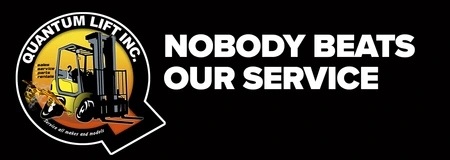How to Choose Forklift Tires
Choosing a forklift tire is an important decision that can affect the performance, safety and cost of your forklift.
There are several factors that you need to consider before buying a new tire, such as:
- Surface Different tires are designed for different surfaces, such as smooth, rough, wet or dry. Cushion tires are best suited for indoor or light outdoor use on smooth surfaces, while pneumatic tires can handle more rugged terrain and sharp objects
- Load and Frequency The heavier and more frequent your loads are, the more durable and resistant your tires need to be. Solid pneumatic tires are made of solid rubber and can’t be punctured or deflated, which makes them ideal for heavy-duty applications.
- Specifications Your forklift is designed with a specific tire type and size in mind, and changing them can affect the stability, clearance and capacity of your forklift. You should always follow the manufacturer’s guidelines and consult with a tire expert before making any changes.
To help you choose the right forklift tire, you can use the following comparison charts that show the advantages and disadvantages of each tire type:
| Tire Type | Advantages | Disadvantages |
|---|---|---|
| Cushion | - Lower initial cost - Longer lasting - Better traction on smooth surfaces |
- Limited to smooth surfaces - Lower ground clearance - Smaller turning radius |
| Pneumatic | - Higher ground clearance - Larger turning radius - Better traction on rough surfaces |
- Higher initial cost |
| Solid Pneumatic | - Higher ground clearance - Larger turning radius - Better traction on rough surfaces - Resistant to punctures and deflation |
- Higher initial cost |
If you have any questions or need more assistance, please call us.
Other Resources
https://www.logisnextamericas.com/en/logisnext/resources/choosing-the-right-forklift-tires
https://www.logisnextamericas.com/en/logisnext/resources/forklift-tires
©






